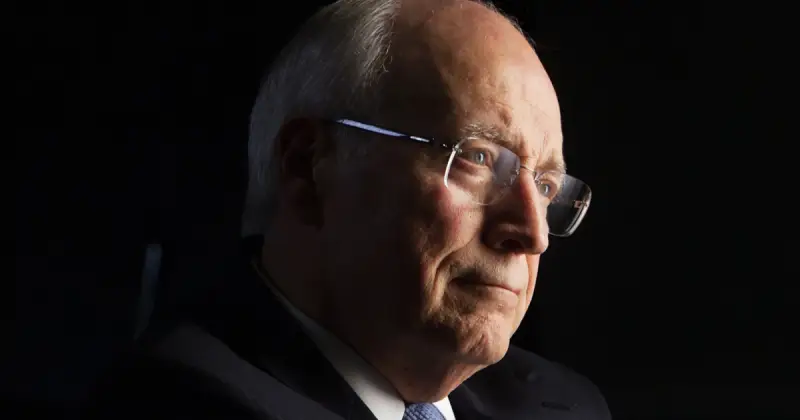
Dick Cheney, the formidable and often controversial statesman who served as Vice President under President George W. Bush, has died at the age of 84. His family confirmed that he passed away peacefully Monday evening due to complications from pneumonia and longstanding cardiac and vascular conditions.
🦅 A Titan of Conservative Power
Cheney’s political career spanned more than four decades, leaving an indelible mark on American governance, foreign policy, and the Republican Party. Known for his strategic mind and unflinching approach to executive power, Cheney was both revered and reviled for his role in shaping the post-9/11 world.
-
Vice Presidency (2001–2009): Cheney redefined the office of the vice president, wielding unprecedented influence over national security, intelligence, and defense policy. His tenure was marked by the Bush administration’s aggressive response to terrorism, including the creation of the Department of Homeland Security and the authorization of enhanced interrogation techniques.
-
Iraq War Architect: Cheney was a leading advocate for the 2003 invasion of Iraq, citing the threat of weapons of mass destruction—a claim later discredited. His role in promoting the war remains one of the most debated aspects of his legacy.
-
Earlier Roles: Cheney served as Secretary of Defense under President George H.W. Bush, overseeing Operation Desert Storm in 1991. He also held positions as White House Chief of Staff under President Gerald Ford and represented Wyoming in Congress for a decade, where he rose to House Minority Whip.
🏡 Family, Faith, and Final Reflections
Cheney died at his home in Jackson Hole, Wyoming, surrounded by his wife Lynne and daughters Liz and Mary. The family released a statement describing him as “a devoted husband, father, and grandfather” who lived with “courage, honor, love, kindness, and fly fishing.” His deep bond with his family remained a constant throughout his public life, even as political storms swirled around him.
🗣️ Post-Political Influence and Legacy
After leaving office, Cheney remained a vocal figure in conservative circles, often clashing with the populist wave that overtook the Republican Party. He publicly criticized President Donald Trump and supported his daughter Liz Cheney’s efforts to hold Trump accountable for the January 6 Capitol attack, even as it cost her politically.
Cheney also authored memoirs and appeared in documentaries that offered insight into his worldview, unapologetically defending decisions that shaped a generation of U.S. foreign policy.
📜 A Legacy That Still Divides
Cheney’s death closes a chapter on one of the most consequential—and divisive—careers in American political history. Supporters hail him as a patriot who prioritized national security and strength; critics argue his policies eroded civil liberties and destabilized the Middle East.
Yet few dispute his impact. Cheney’s legacy will continue to be studied, debated, and felt in the corridors of power for years to come.
He is survived by his wife Lynne, daughters Liz and Mary, and several grandchildren. Funeral arrangements have not yet been announced.
Add comment
Comments